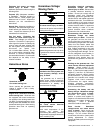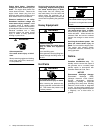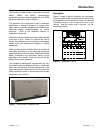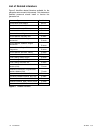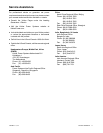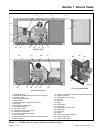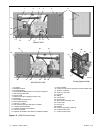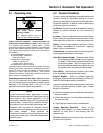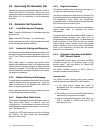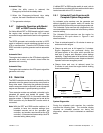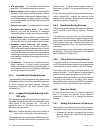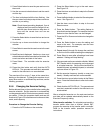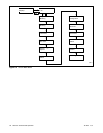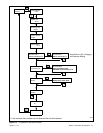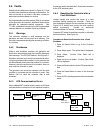
TP-6810 11/13 15Section 2 Generator Set Operation
Section 2 Generator Set Operation
2.1 Operating Area
Carbon monoxide.
Can cause severe nausea,
fainting, or death.
The exhaust system must be
leakproof and routinely inspected.
WARNING
Carbon monoxide symptoms. Carbon monoxide can
cause severenausea, fainting, or death. Carbon monoxide
is a poisonous gas present in exhaust gases. Carbon
monoxide isan odorless, colorless,tasteless, nonirritatinggas
that can cause death if inhaled for even a short time. Carbon
monoxide poisoning symptoms include but are not limited to
the following:
D Light-headedness, dizziness
D Physical fatigue, weakness in
joints and muscles
D Sleepiness, mental fatigue,
inability to concentrate
or speak clearly, blurred vision
D Stomachache, vomiting, nausea
If experiencing any of these symptoms and carbon monoxide
poisoning is possible, seek fresh air immediately and remain
active. Do not sit, lie down, or fall asleep. Alert others to the
possibility of carbon monoxide poisoning. Seek medical
attention if the condition of affected persons does not improve
within minutes of breathing fresh air.
Keep the generator set area clear. Maintain at least
0.9 m (3 ft.) of clearance on all sides of the generator
set. Verify that there are no windows, air vents, or other
openings in the building within 1.5 m (5 ft.) of the
generator set exhaust outlet in any direction.
Notice
Do not locate patios, decks, play areas, or animal
shelters near the generator set. Keep items such as
lawn furniture, toys, sports equipment, and all
combustible materials away from the generator set
exhaust outlet. Remind family members, children,
and visitors to use caution near the generator set.
Generator sets connected to automatic transfer
switches start automatically during exercise periods
and power outages. Some generator set
components become hot when the generator set is
running and remain hot for a time after the generator
set shuts down.
2.2 Prestart Checklist
To ensure continued satisfactory operation perform the
following checks or inspections before or at each
startup, as designated, and at the intervals specified in
the service schedule. In addition, some checks require
verification after the unit starts.
Air Cleaner. Check for a clean and installed air cleaner
element to prevent unfiltered air from entering the
engine.
Air Inlets. Check for obstructions that could block the
flowof coolingair. Keepthe airintakearea clean. Do not
leave rags, tools, or debris on or near the generator set.
Battery. Check for tight battery connections. Consult
the battery manufacturer’s instructions regarding
battery care and maintenance.
CoolantLevel. Checkthecoolantlevelaccording tothe
cooling system maintenance information.
Note: Block heater damage. The block heater will fail
if the energized heater element is not immersed
in coolant. Fill the cooling system before turning
on the block heater. Run the engine until it is
warm, and refill the radiator to purge the air from
the system before energizing the block heater.
Drive Belt(s). Check the belt condition of the water
pump and battery charging alternator belt(s).
Exhaust System. Check for exhaust leaks and
blockages. Check the silencer and piping condition and
check for tight exhaust system connections.
Inspect the exhaust system components for cracks and
corrosion (exhaust manifold, exhaust pipe, exhaust
clamps, and silencer).
D Checkfor corrodedor brokenmetalparts andreplace
them as needed.
D Check that there are no combustible materials near
the exhaust outlet.
D Check that the exhaust outlet is unobstructed.
Carbon Monoxide Detectors. Check for the
installation and operation of carbon monoxide (CO)
detectors on each level of any building near the
generator set.
Oil Level. Maintain the oil level at or near, not over, the
full mark on the dipstick.



